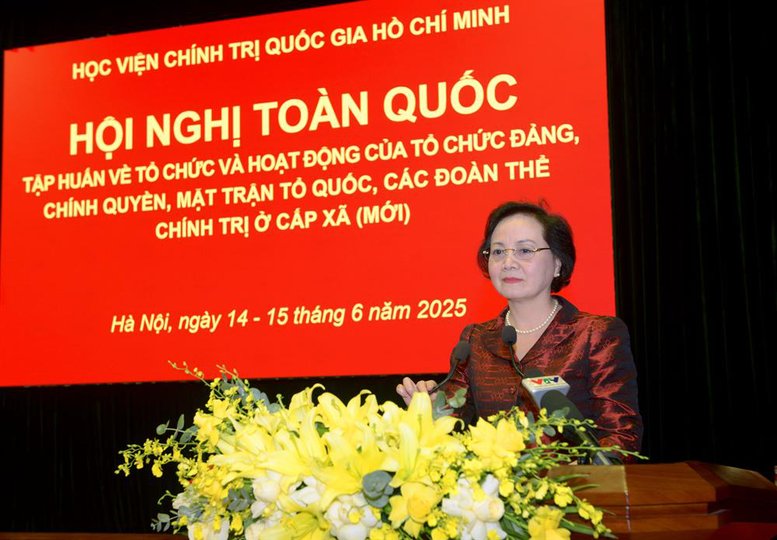
Comrade Pham Thi Thanh Tra, Member of the Party Central Committee, Minister of Home Affairs , Deputy Head of the Government's Steering Committee on the arrangement of administrative units at all levels and the organization of two-level local governments, introduced the topic at the Conference.
This was emphasized by Minister of Home Affairs Pham Thi Thanh Tra at the National Conference on professional training related to Party building, state management, organization and operation of the Fatherland Front, and political organizations at the commune level (new), on the afternoon of June 14.
Here, Minister Pham Thi Thanh Tra introduced the topic: "Overview report on functions, tasks and powers of 2-level local governments; general issues on decentralization, delegation of power and assignment of authority to 2-level local governments".
The Minister emphasized that the whole country is preparing to switch to a two-tier local government model with the goal of streamlining the apparatus, reducing intermediate levels, improving operational effectiveness and efficiency, while ensuring that the government is close to the people and serves the people better.
"A two-level local government is a place where each level of government is not only an enforcement agency, but also a subject empowered to make decisions, bound by responsibilities, and reorganized to better serve the people. At the same time, each level of government is truly a development center for the locality and the country in a new development stage, a new era," said Minister Pham Thi Thanh Tra.
According to the Minister, on June 12, the National Assembly officially passed a Resolution on the arrangement of provincial-level administrative units, thereby reducing from 63 provinces and cities to 34 provincial-level administrative units, including 28 provinces and 6 centrally-run cities.
Next, on June 16, the National Assembly will pass a resolution amending and supplementing a number of articles of the Constitution and the Law on Organization of Local Government (amended). Immediately after that, the National Assembly Chairman will, on behalf of the National Assembly Standing Committee, sign 34 resolutions on the arrangement of commune-level administrative units in provinces and cities after the merger.
"The above contents are all being implemented synchronously, so that by July 1, the whole country will officially operate a two-level local government model with full political foundation, legal basis and practical requirements for the goal of sustainable development in the future," said the Minister.
According to the head of the Ministry of Home Affairs, the Law on Organization of Local Government (amended) will be passed early next week, demonstrating new legislative thinking, in which the functions, tasks, and powers of each level of government, each entity, and each institution are clearly and distinctly designed.
The construction of a two-level government model is based on five urgent requirements: Political and institutional; organizational model innovation to overcome current shortcomings; proactive - responsible - effective local governance; digital transformation and sustainable development requirements; and restructuring of administrative units associated with new development spaces.
“This is a demonstration of the high political determination of the Party and State, especially the Politburo, the Secretariat and General Secretary To Lam, in comprehensively reforming the state administrative apparatus,” said the Minister.
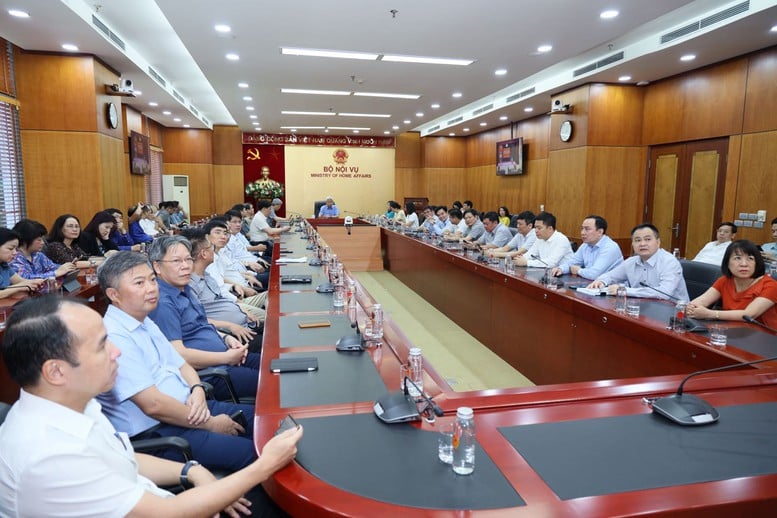
Leaders of the Ministry of Home Affairs, units under and directly under the Ministry attended the Conference at the Ministry of Home Affairs bridge point.
The "conductor" role of the Chairman of the Provincial People's Committee
A notable point in the two-level local government model as well as the draft Law on Organization of Local Government (amended) is the elevation of the position, role and function of the Provincial People's Committee, from a purely administrative management agency, to a unified operating center, enforcing the law, proactively and regulating sustainable development at the local level.
"The provincial People's Committee is identified as a comprehensive local governance entity, directly managing all activities of the administrative system from the provincial to the communal level; at the same time, it is the focal point, organizing the implementation of laws, public policies, and development strategies in the local space, connecting multi-sectoral stratification, from the central to the provincial level and from the provincial to the communal level. These tasks are also where the administrative thinking of creation, action, and service to the people is clearly demonstrated," Minister Pham Thi Thanh Tra emphasized.
The Chairman of the Provincial People's Committee is no longer only the head of the provincial administrative government, but also the "core" of operations, contributing to the realization of a modern local governance model.
"This is a shift from collective management to promoting individual roles, associated with clear and specific regimes and responsibilities, and at the same time a change in institutional thinking - from decentralized administration to centralized management, promoting individual responsibility.
Previously, any issue had to wait for the collective decision of the People's Committee and then the People's Council. Going around in circles would mean losing opportunities and not being able to resolve work promptly for the people and businesses," the Minister emphasized.
This draft law expands the group of independent tasks of the provincial People's Committee Chairman from 11 to 23, clearly demonstrating the role of "conductor in the operation of local government". There are 5 typical groups of tasks, which are: Organizing and directing the implementation of laws; uniformly operating the administrative apparatus from the province to the commune; decentralizing and authorizing strongly and proactively; making decisions on behalf of the People's Committee when necessary and handling situations that arise beyond the ability of the lower levels to handle.
"When the provincial People's Committee Chairman determines that a specialized agency or commune level shows signs of avoidance or shirking, the provincial People's Committee Chairman has the right to handle it," the Minister clarified.
In particular, for the first time in the law, the Chairman of the Provincial People's Committee is given the right to directly decentralize and delegate authority to specialized agencies, public service units, commune-level authorities and Vice Chairmen of the People's Committee. This is expected to help overcome the stagnation and congestion in handling administrative work at the local level.
The Minister affirmed that expanding the authority of the Chairman of the Provincial People's Committee aims to promote the individual role, overcome the "blurred" role of the leader, and at the same time expand the space for action associated with the power control mechanism, design direct leadership and management rights, without intermediaries...
Commune People's Committee: Frontline of action, embodiment of government to the people
For the commune level, Minister Pham Thi Thanh Tra also emphasized the core tasks and powers in the state management field at the commune level.
These are: Organizing law enforcement and administrative management; managing local economic and social development; managing local finance, budget, and public investment; managing land, resources, environment, and construction order; managing population, civil status, security, and national defense in the community; organizing the provision of essential basic public services and serving social security for the people; implementing administrative reform, digital government, and digital citizenship; organizing the personnel apparatus and public management of commune-level civil servants.
According to the Minister, the People's Committee at the commune level will truly be the front line, the place to turn all policies into concrete actions, the place where people "touch the government every day".
The People's Committee at the commune level is no longer an "extended arm" but a "brain" operating at the grassroots level. Therefore, clearly and fully defining and strongly reforming the functions, tasks and powers of the People's Committee at the commune level is not only a legal step forward but also a political commitment of the state to the people.
The Minister hopes that civil servants at commune level will fully understand the functions and tasks of the commune level to meet the operational requirements of the local government, which is the level closest to the people to serve the people.
For the Chairman of the Commune People's Committee, the law defines 17 tasks and powers, an increase of 10 tasks and powers; the Chairman of the Ward People's Committee has 23 tasks and powers, an increase of 12 tasks and powers compared to the current law. In addition, there are tasks transferred from the district level to...
According to the Minister, in the new model, the People's Committee at the commune level, especially the Chairman of the People's Committee at the commune level, is the most concrete embodiment of the government in the eyes of the people; is the local leader, the operator on the ground and is the person directly responsible for the effectiveness of local governance.
"Therefore, more than ever, the Chairman of the Commune People's Committee needs to be knowledgeable about the law, steadfast in law enforcement and transparency, and act closely with the people to be able to meet the requirements of the tasks in the management of the local government at the commune level," the Minister emphasized.
Thu Giang
Source: https://baochinhphu.vn/bo-truong-noi-vu-cap-xa-khong-con-la-canh-tay-noi-dai-ma-la-bo-nao-dieu-hanh-tai-co-so-102250614185319275.htm








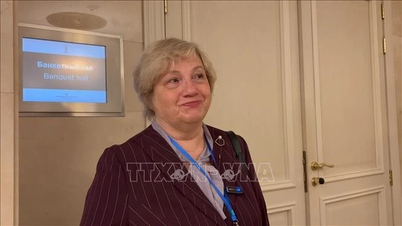



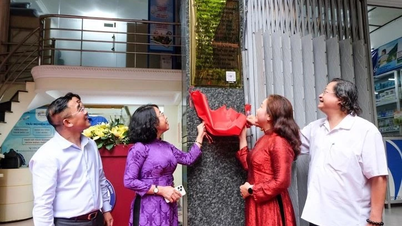
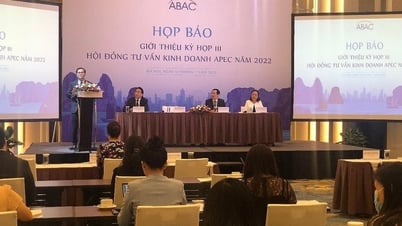


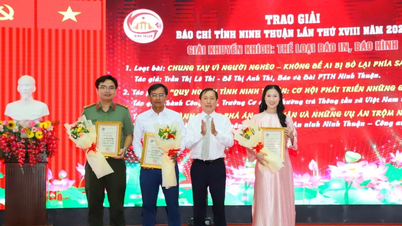




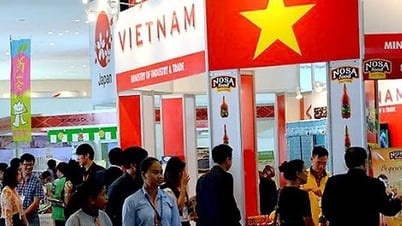


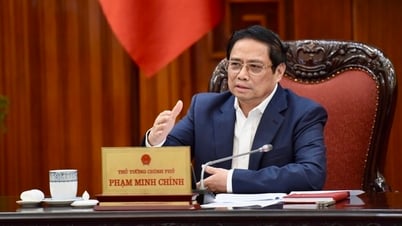
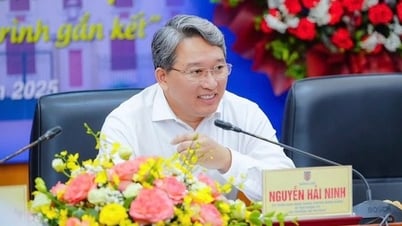
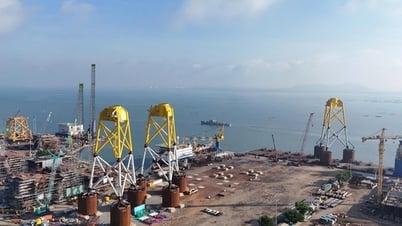
















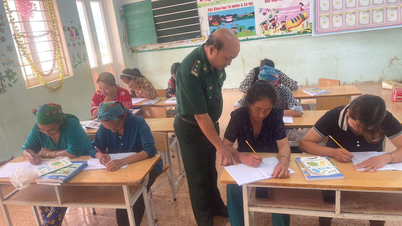







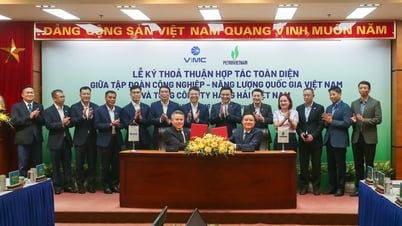







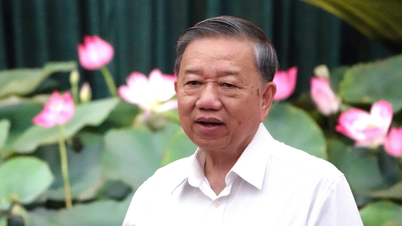

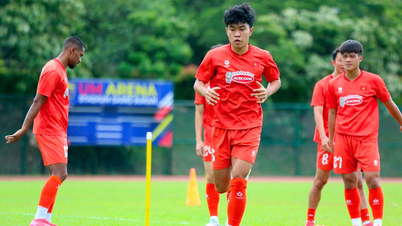









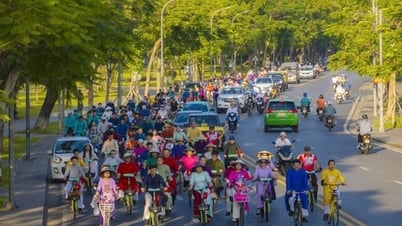




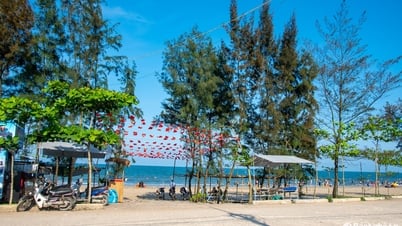
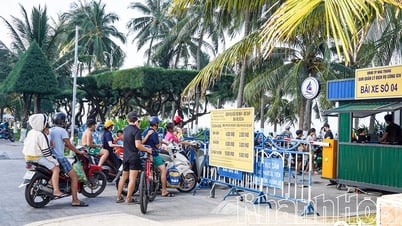



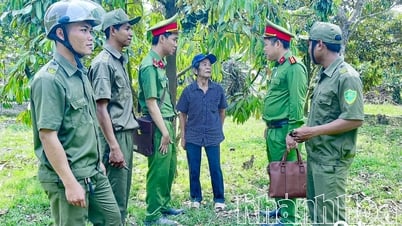















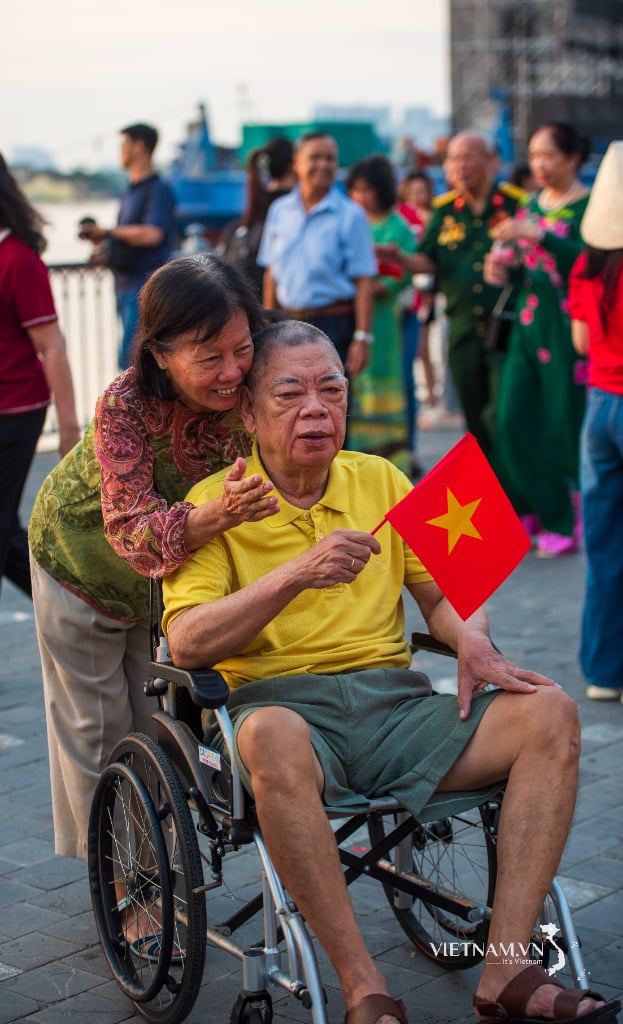
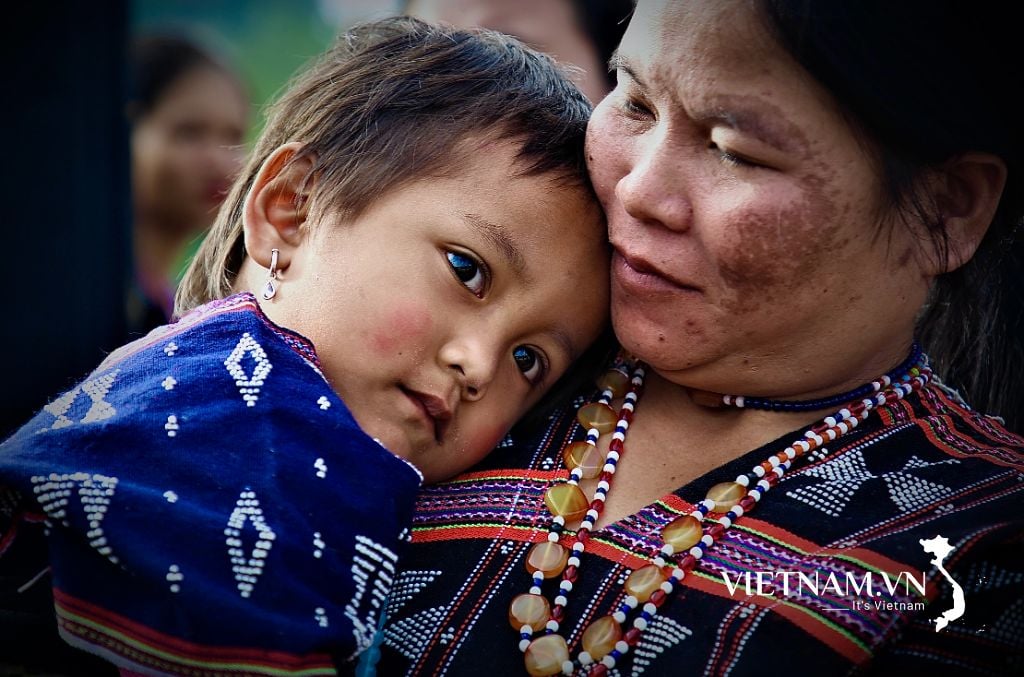
Comment (0)